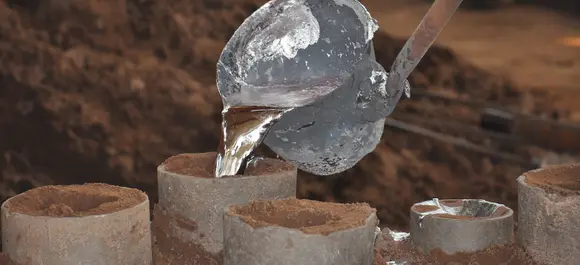Mobile:+86-311-808-126-83
Email:info@ydcastings.com
Exploring Innovative Solutions for Complex Environmental Challenges in the 21st Century
Understanding UNS J93380 A Comprehensive Overview
UNS J93380 is a specific designation in the Unified Numbering System for metals and alloys, primarily used in various industries for material classification. This specific designation corresponds to a cast nickel-chromium-molybdenum alloy, which is known for its excellent mechanical properties, corrosion resistance, and elevated temperature strength. These characteristics make UNS J93380 a preferred choice in several demanding applications, including aerospace, chemical processing, and oil and gas industries.
Chemical Composition and Properties
The main alloying elements in UNS J93380 include nickel, chromium, and molybdenum, which contribute to its desirable properties. Typically, the alloy consists of approximately 60% nickel, 20% chromium, and 15% molybdenum, although the exact percentages can vary. This combination not only enhances its strength but also provides resistance to pitting and stress corrosion cracking, particularly in harsh environments.
One notable aspect of UNS J93380 is its ability to maintain mechanical strength even at elevated temperatures. This makes it suitable for high-performance applications where other materials might fail. The alloy also exhibits remarkable toughness and can be effectively welded, making it versatile for various manufacturing processes.
Understanding UNS J93380 A Comprehensive Overview
UNS J93380 finds widespread usage across multiple industries due to its superior properties. In the aerospace sector, it is often utilized in engine components and parts that must withstand extreme conditions, including high temperatures and pressures. For instance, turbine blades made from this alloy can endure the intense environments present in jet engines.
uns j93380

In the chemical processing industry, UNS J93380 is favored for equipment used in harsh chemical environments, such as reactors and storage tanks. Its corrosion resistance ensures the longevity and reliability of such equipment, reducing maintenance costs and downtime.
The oil and gas industry also benefits from the properties of UNS J93380. It is commonly used in downhole tubing and valves, where resistance to sour gas and acidic environments is critical. The durability and strength of this alloy ensure that it can handle the extreme pressures and corrosive substances found in such environments.
Fabrication and Handling
When working with UNS J93380, it is essential to follow specific fabrication and handling guidelines to maintain its integrity. The alloy can be hot worked, forged, or cast, depending on the specific requirements of the application. However, special care must be taken during welding processes, as preheating and post-weld heat treatment may be necessary to prevent cracking and ensure optimal properties.
Furthermore, because of the alloy’s high nickel content, it can be sensitive to certain types of corrosion if not properly maintained. Thus, it is imperative to implement appropriate surface treatments or coatings when necessary to enhance its protective properties.
Conclusion
In summary, UNS J93380 is a remarkable material that showcases the advantages of nickel-chromium-molybdenum alloys. Its impressive mechanical properties, corrosion resistance, and ability to perform in extreme environments make it a vital component in various high-stakes industries. As technology and manufacturing processes continue to evolve, the demand for such specialized alloys will likely increase, solidifying UNS J93380's role in the future of engineering and material science.
-
Why Should You Invest in Superior Pump Castings for Your Equipment?NewsJun.09,2025
-
Unlock Performance Potential with Stainless Impellers and Aluminum End CapsNewsJun.09,2025
-
Revolutionize Your Machinery with Superior Cast Iron and Aluminum ComponentsNewsJun.09,2025
-
Revolutionize Fluid Dynamics with Premium Pump ComponentsNewsJun.09,2025
-
Optimizing Industrial Systems with Essential Valve ComponentsNewsJun.09,2025
-
Elevate Grid Efficiency with High-Precision Power CastingsNewsJun.09,2025











